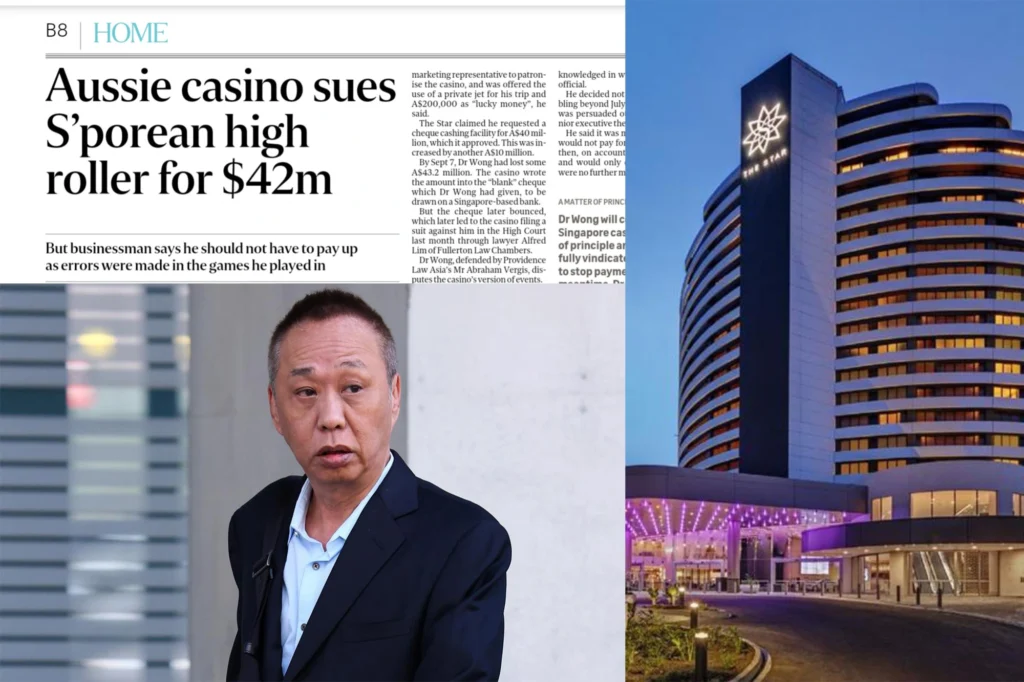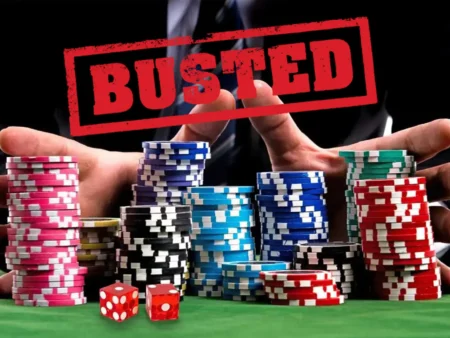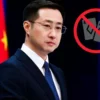
Singapore, Oct 12 – A Singaporean businessman, Wong Yew Choy, has been ordered by an Australian court to pay more than A$38 million (US$25.3 million) in gambling debts to The Star Gold Coast casino in Queensland. The ruling, delivered by Judge Melanie Hindman of the Supreme Court in Brisbane, includes additional costs and interest dating back to September 2018.
A Multi-Million Dollar Loss in Days
Wong accumulated A$47.3 million in losses playing baccarat at The Star Gold Coast over several days in July 2018. Under a rebate agreement with the casino, this amount was later reduced to A$43.2 million. However, Wong left Australia without settling his debt, a practice the judge noted was “not unusual” for high-stakes gamblers.
A Bounced Cheque and a Legal Dispute
To recover the outstanding amount, the casino tried to cash a blank cheque Wong had previously provided during a visit to The Star Sydney. However, the cheque bounced after Wong instructed his bank not to honor any cheques from The Star Gold Coast. The casino made formal demands for repayment, but Wong refused, claiming he had reached an agreement with the casino’s chief operating officer, Paul Arbuckle, that exempted him from covering losses incurred up to that point.
The casino filed a lawsuit against Wong in 2019 to recover the A$43 million, but the case was initially dismissed by Singapore’s High Court in 2020. The Singaporean judge ruled that the issues involved required a full trial for proper resolution.
Disputes Over Card Dealing and Alleged Verbal Agreement
According to court documents, Wong had complained multiple times about how the casino’s dealers managed the baccarat game, prompting him to temporarily stop gambling. The Star acknowledged his grievances, leading to an apology from COO Paul Arbuckle.
Wong alleged that, during a conversation with Arbuckle, the COO verbally agreed to waive his gambling losses. However, the apology letter from Arbuckle did not mention any such agreement. Arbuckle denied ever making a deal to cancel Wong’s debt.
“The alleged verbal agreement is neither reflected in the apology letter nor supported by any other evidence presented during the trial,” Judge Hindman stated.
The judge further noted inconsistencies between Wong’s oral testimony and the claims he made in his defense.
Final Judgment
Despite the initial reduction in his losses to A$43.2 million, the casino granted an additional discount of A$4.55 million, leaving a final claim of A$38.66 million. Judge Hindman ruled in favor of the casino, ordering Wong to pay the reduced amount along with accrued interest and legal costs.
“The plaintiff has substantiated its claim, and the defendant has failed to present a valid defense,” the judge concluded.
This case highlights the legal challenges high-roller gamblers and casinos can encounter when disputes arise over losses, agreements, and repayment.










